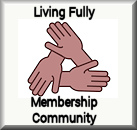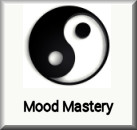In seeing my couple clients over the last year, I was reminded of a series of studies by David Burns. He was hoping to find, among other things, attitudes that lead to loving, rewarding relationships and those that lead to conflict and misery. What they found was that other-blame was by far the more important mind-set. This mind-set of blaming their partners (or others) for the problems in their relationship not only showed they were intensely dissatisfied with their relationship but this mind-set would accurately predict they would be more miserable and unhappy in their relationships within 3 months time. Conversely, those who were committed to making their partners happy and whose attitude showed a willingness to assume full personal responsibility for solving problems in their relationship were the most satisfied in their relationships and had an increase in their satisfaction over time.
One way that other blame shows up in therapy and gets couples into trouble is that when they blame, they call it truth telling. ‘I am only being honest” is worn as a badge to justify their assault on others or to justify their disrespect of their partner. In relationship, we need to consider the context and the other when we share what is inside of us. In the interests of being known, we can sometimes let the other in on our thoughts and feelings without sensitivity. This leads to brutality in the relationship. It is both important to know our feelings and to know how and when to express them. Blaming leads to cognitive distortions about your partner, arguing defensively, making win- lose arguments which in turn leads to endless fighting and bitterness.
The opposite challenge that some couples have is that one person totally blames himself or herself. Their thoughts are consumed with their failure and inadequacy and they often obsess on what the other has said about them. They feel paralyzed and defeated. They are flooded with cognitive distortions that make them want to give up. This often leads to depression, feeling isolated and lonely, which in turn leads to many more relationship challenges.
So what does work? I really love to see the changes with couples in my office when they understand the difference between blaming others, self blame and personal responsibility. When couples are able to have personal responsibility, they are able to look at their couple challenges in a way that they are looking for their contribution for the challenge in order to learn about themselves and how to resolve the conflict in a better way. They listen differently. They are listening for the other’s truth, the way the conflict looks to them. They stay in the conversation, being actively engaged, trying to gain a better understanding. They feel open, receptive, caring and have a greater intimacy with themselves and the other, leading to greater trust and satisfaction. This may sound a long way from where you are but when you have the skills, practice, a positive mindset and some positive goals towards this end for yourself, you will be able to accomplish a healthier relationship.





